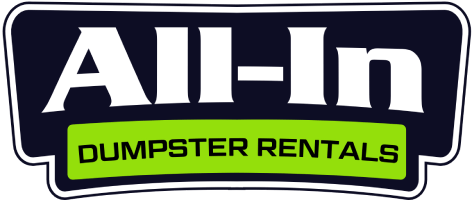Community cleanups bring neighbors together for a common cause – creating cleaner, more beautiful spaces where we all live. Here in Asheville and Western North Carolina, our natural surroundings inspire us to maintain the beauty that makes our region special. But when multiple households join forces for a major cleanup effort, the waste disposal logistics can get complicated. That’s where shared dumpster rentals come in.
As we’ve seen while serving neighborhoods across Buncombe, Henderson, Haywood, and Madison counties, group rentals make perfect sense for community projects. But they also come with their own set of challenges when it comes to organization, cost-sharing, and logistics.
Walking the tree-lined streets of Asheville neighborhoods like Montford, West Asheville, or the growing communities in Arden and Fairview, I’ve noticed how community pride runs deep. Our mountain town spirit means neighbors frequently band together for improvement projects – from storm cleanup after our occasional severe weather to seasonal beautification efforts that keep our neighborhoods looking their best. These collaborative efforts often generate significant waste that goes beyond what regular trash service can handle.
Benefits of Sharing Dumpster Costs
When neighbors pool resources for waste management, everyone wins. Here’s why shared dumpster rentals make so much sense for Asheville community cleanups:
Significant cost savings – Perhaps the most obvious benefit is financial. When a 15-yard dumpster that might cost $350-450 is split between 5-10 households, the per-home cost drops dramatically. For many neighborhood associations and informal cleanup groups across Western NC, this approach turns what might be a budget-stretching expense into a very reasonable investment.
Higher capacity for large projects – Instead of each home renting a small dumpster or making multiple trips to the Buncombe County landfill, a shared larger dumpster allows for more efficient disposal. This means the entire neighborhood can tackle bigger projects like removing fallen trees after a storm or clearing community spaces.
Environmental benefits – One larger dumpster creates less environmental impact than multiple smaller containers or numerous individual trips to disposal facilities. For environmentally-conscious Asheville residents, this reduced carbon footprint matters.
Community building – Some of the strongest neighborhood bonds in Western North Carolina form during shared projects. Working together toward a common goal fosters connections that last long after the cleanup ends. I’ve seen Asheville neighbors who barely knew each other become friends after organizing community cleanup days.
Organizing Your Neighborhood Dumpster Share
Getting neighbors on board requires planning and clear communication. Here’s how to make it happen smoothly:
Start with a champion – Every successful community project needs someone to take the lead. If you’re reading this, that might be you! The champion helps coordinate logistics, communicate with neighbors, and often serves as the main contact for the rental company.
Gauge interest early – Use neighborhood social media groups, email lists, or even good old-fashioned flyers to determine who might participate. In close-knit areas like the historic neighborhoods near downtown Asheville, word often spreads quickly, but don’t assume everyone will automatically join in.
Choose the right timing – In Western North Carolina, spring and fall tend to be popular for community cleanups. Spring cleanups help prepare outdoor spaces for summer enjoyment, while fall cleanups help manage leaf debris before winter arrives. Avoid scheduling during peak tourism seasons when streets might already be congested.
Select an accessible location – The dumpster needs to be placed where all participating neighbors can reasonably access it. Common choices include:
– A willing neighbor’s driveway (with proper protection for the surface)
– A community-owned space like a shared parking area
– A temporarily blocked section of street (check with local authorities about permits)
Remember that in Asheville’s hilly terrain, finding a flat, accessible spot that works for everyone can sometimes be challenging. Plan accordingly!
Fair Cost-Sharing Methods
The financial aspect of shared dumpster rentals often raises the most questions. Here are several approaches that work well in Asheville neighborhoods:
Equal splits – The simplest approach is dividing the total cost equally among all participating households. This works well for neighborhoods with similar home sizes and cleanup needs.
Usage-based contribution – Some neighborhoods opt for a sliding scale where those who expect to use more capacity contribute more. This honor system approach works well in communities with established trust.
Neighborhood association funding – Many organized neighborhoods in Asheville have association funds that can cover part or all of the dumpster rental, reducing individual contributions.
Collection methods – Digital payment apps like Venmo, Zelle, or PayPal have made collecting funds much easier than in years past. Designate one trusted neighbor to handle the financial side, collecting contributions and paying the rental company.
One Asheville neighborhood I worked with created a simple Google form where neighbors could sign up, indicate their expected usage level, and select their payment method. This organized approach eliminated confusion and ensured everyone contributed fairly.
Practical Tips for Dumpster Sharing Success
After helping countless Asheville area neighborhoods with shared rentals, I’ve noticed some patterns that lead to successful community cleanup experiences:
Create clear usage guidelines – Establish and communicate rules about:
– Acceptable materials (what can and cannot go in the dumpster)
– Hours of access (to avoid late-night noise in residential areas)
– How to properly load the dumpster (heavier items on bottom, distributing weight evenly)
– Who is responsible for securing tarps if rain is expected
Develop a schedule – For larger neighborhoods, consider creating time slots for different streets or sections to avoid everyone trying to use the dumpster simultaneously. This works particularly well in larger neighborhoods in areas like Hendersonville or Waynesville where many homes might be participating.
Plan for overflow – Even with careful planning, community cleanups sometimes generate more waste than expected. Have a contingency plan, whether it’s scheduling an additional pickup or arranging for certain types of waste to be handled separately.
Document everything – Take before-and-after photos of both the cleanup areas and the dumpster itself. This helps with future planning and creates a sense of accomplishment when the project is complete.
Consider special waste streams – Some materials common in Asheville home cleanups require special handling, including:
– Electronics (which can be recycled at the Buncombe County Landfill)
– Hazardous materials (paints, chemicals, etc.)
– Yard waste (which might be composted rather than landfilled)
Real Examples from Asheville Neighborhoods
The proof is in the real-world applications. Here are how some local neighborhoods have successfully implemented shared dumpster programs:
Montford Annual Spring Cleanup – This historic neighborhood near downtown Asheville organizes an annual event where a centrally located dumpster serves the entire community for a weekend. Their neighborhood association covers half the cost, with participating homes contributing to the remainder.
West Asheville Storm Response – After a particularly severe storm last year, several blocks in West Asheville pooled resources for a shared dumpster to handle fallen limbs and debris. They created a simple spreadsheet for signups and collected funds through a neighborhood leader.
Fairview Community Association Quarterly Program – In this more rural area outside Asheville, the community association arranges for quarterly dumpster rentals at their community center, allowing members to bring accumulated waste for proper disposal. This regular schedule has significantly reduced illegal dumping in woodland areas.
One particularly creative approach came from an Arden neighborhood that turned their community cleanup into a block party. They scheduled the dumpster delivery for Friday afternoon, organized cleanup activities for Saturday morning, and celebrated with a community cookout Saturday evening. The social element increased participation and strengthened neighborhood bonds.
Working with Your Rental Company
Choosing the right partner for your community dumpster rental makes all the difference. As a local, family-owned company serving Western North Carolina, we’ve learned what works best for neighborhood sharing arrangements:
Clear communication is essential – When inquiring about a shared rental, be upfront about your plans. Explain that multiple households will be using the dumpster so the company can help you select the appropriate size and placement location.
Ask about community discounts – Some companies (including ours) offer special pricing for community cleanup events. These might not be advertised on websites, so it’s always worth asking directly.
Discuss timing flexibility – For community cleanups, having the dumpster available over a weekend often works best. Talk with your provider about delivery on Friday and pickup on Monday to maximize weekend availability when most neighbors are home.
Understand weight limits – With multiple households contributing, weight adds up quickly. Be clear on what the weight limit is for your rental and what additional charges might apply if exceeded.
Consider accessibility needs – Asheville’s varied topography can present challenges for dumpster placement. Work with your provider to find solutions for neighborhoods with steep driveways, narrow streets, or other access issues.
Beyond the Cleanup: Building Lasting Community Connections
The benefits of shared dumpster rentals extend beyond waste removal. These collaborative efforts create lasting positive effects in Asheville neighborhoods:
Environmental stewardship – Participating in community cleanups fosters ongoing environmental awareness. Many neighborhoods report that after a successful cleanup event, residents become more conscious about regular litter control and proper disposal.
Neighborhood pride – There’s something powerful about seeing immediate visual improvements in your community. This shared sense of accomplishment often leads to other beautification projects like community gardens, which are particularly popular in the fertile soil and favorable growing conditions of Western North Carolina.
Supporting vulnerable neighbors – Shared cleanups provide opportunities to help elderly or disabled residents who might struggle with property maintenance. I’ve seen Asheville neighborhoods specifically organize to help clear debris from the yards of neighbors who couldn’t manage the task themselves.
Creating traditions – Many neighborhoods find that their first shared dumpster experience leads to regular seasonal events that residents look forward to. These traditions strengthen community identity and provide regular opportunities for neighbors to connect.
One downtown Asheville neighborhood has paired their biannual cleanup with a tool-sharing initiative, where neighbors not only share the cost of waste removal but also pool resources like pressure washers, lawn equipment, and other tools that aren’t needed daily by most households.
Moving Forward as a Community
The shared dumpster model represents the best of what makes Asheville special: our collaborative spirit, environmental consciousness, and commitment to creating beautiful spaces. When neighbors come together around a common goal like cleaning up their community, the benefits extend far beyond the visible improvements.
If you’re considering organizing a shared dumpster rental for your Asheville area neighborhood, we’re here to help with advice, fair pricing, and flexible solutions tailored to your community’s unique needs. From the historic homes of Montford to the rural properties of Madison County, we understand the diverse needs of Western North Carolina communities.
The next time you look around your neighborhood and think about improvements, remember that you don’t have to go it alone. Sharing the load—both literally and figuratively—makes the work lighter and the community stronger. That’s the mountain way, after all.

